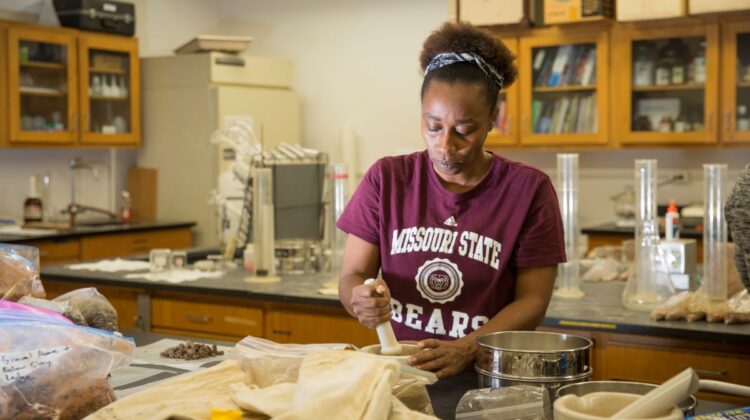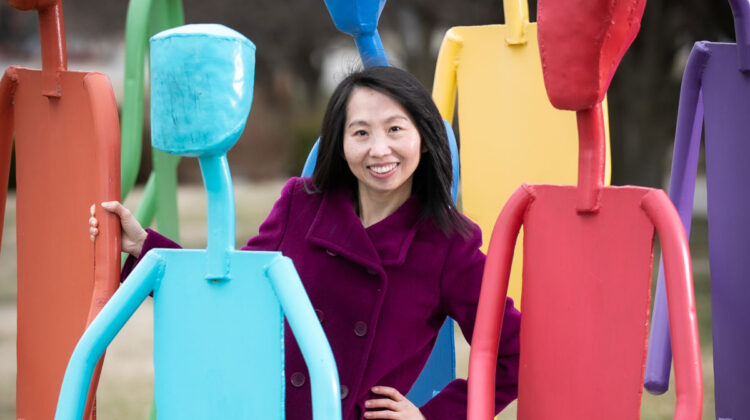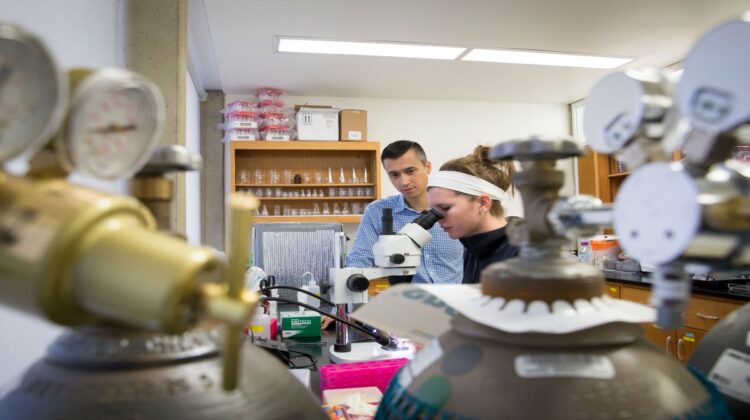It’s well known that there are few women in STEM compared to men. But for women from URM (underrepresented minority) backgrounds, this is an even bigger issue. If a STEM department has a female faculty member from a URM, she may well be the only URM woman in her department. This can lead URM women in STEM to feel isolated in their workplaces. This isolation is a major factor in driving them away from science. Mentoring, a process that is vital in helping faculty succeed in higher education, tends to be less effective for URM women. They are unlikely to have access to a senior faculty member who shares their background and can empathize with their unique challenges.
Missouri State University has its own mentoring program, Bear Bridge. This program helps create a strong community and support system among diverse faculty members at our university. This is an example of what we are doing locally to promote equity for URM faculty. But at universities with very few URM faculty, there may be no mentors who share both their background and their field of study. The article Amplifying Voices: Investigating a Cross-Institutional, Mutual Mentoring Program for URM Women in STEM shows a possible strategy to fix this issue. This article was written by Sandra Petersen, Barbara Zurer Pearson, and Mary A. Moriarty. The article presents data collected from a series of virtual meetings. In these meetings, women of color from many different institutions were invited to share the struggles they faced in the workplace and come up with solutions.
The women in these groups took surveys before and after the series of meetings. The surveys asked about their feelings of isolation in their departments. By the end, the answers showed a strong improvement in their sense of community and belonging. The women were grateful for a chance to meet with others who shared their experiences. They said that they especially appreciated being able to speak in groups entirely made up of women of color. They felt they could express themselves without having to educate their white colleagues. They also did not have to censor themselves to spare their feelings. This was something many expressed having little opportunity to do elsewhere.
After the meetings, the participants felt more confident in their ability to self-advocate and solve problems in the workplace. This made them more likely to remain in their fields. This research illustrates the importance of empathetic mentorship. Mentors who do not provide both psychosocial and academic support will not be as effective, the authors assert. The two types of mentoring are interconnected. Empathy and strong social connections are vital to retention of URM women in STEM.
Source: Amplifying Voices: Investigating a Cross-Institutional, Mutual Mentoring Program for URM Women in STEM. (Aug. 2020) Petersen, Sandra, Pearson, Barbara Zurer, Moriarty, Mary A., Innovative Higher Education, 45(4).




